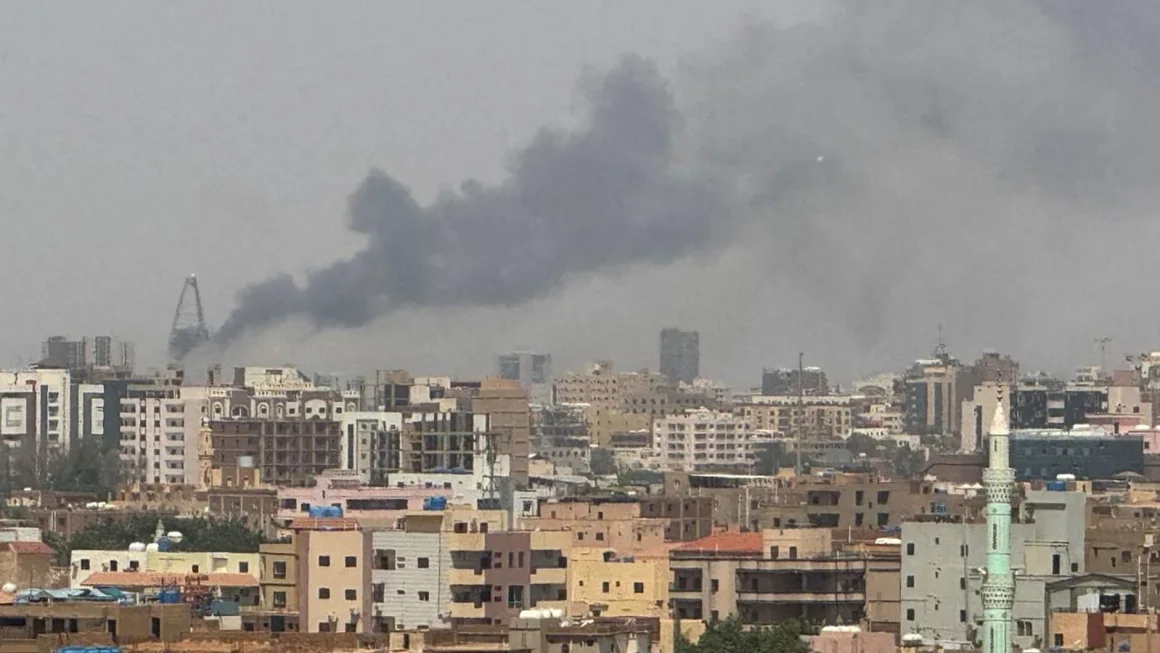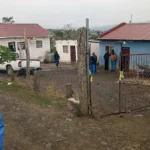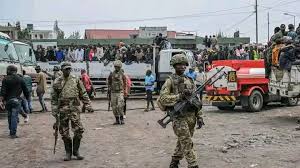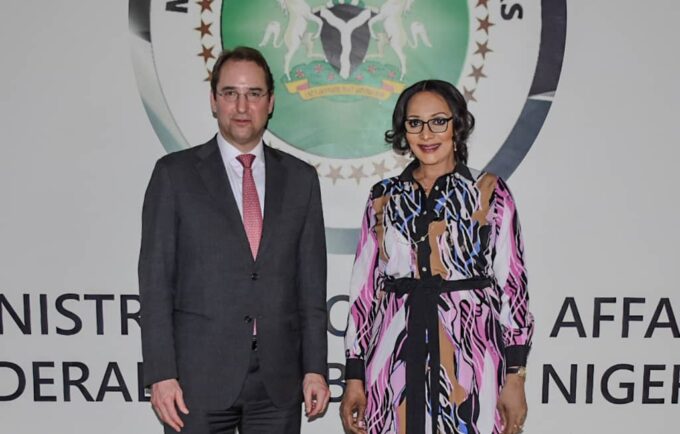The Sudanese army has launched its largest artillery and airstrikes operation in the capital since the onset of its conflict with the Rapid Support Forces (RSF). This push, aimed at regaining lost territory, signals the army’s determination to retake control of Khartoum, Omdurman, and Bahri after 17 months of intense fighting.
The offensive, which took place on Thursday, came just before an address by the army’s commander, General Abdel Fattah al-Burhan, at the United Nations General Assembly in New York. The timing suggests a show of force as the Sudanese government seeks to assert its position on the global stage.
Witnesses reported heavy bombardments, with army forces attempting to cross bridges over the Nile that connect the capital’s three main cities. Ahmed Abdalla, a resident of Bahri, described the intense strikes as deafening: “The sounds of explosions are very loud.” Footage from the scene showed thick black smoke rising, with loud booms resonating across the capital.
While military sources claimed the army had made progress in crossing bridges, the RSF countered, stating they had repelled the army’s attempts. Independent confirmation of these claims has been elusive, as the situation on the ground remains fluid and dangerous.
The RSF, a formidable paramilitary group, has proven resilient, embedding its forces within the capital. Despite airstrikes and artillery from the army, the RSF’s ground forces continue to hold critical positions across Khartoum, Bahri, and Omdurman. Earlier in the year, the army managed to retake parts of Omdurman but has since struggled to dislodge the RSF from the capital’s other regions.
Crisis in Darfur
While the army pushes for control in Khartoum, the RSF continues to make significant gains in other parts of Sudan. The conflict has triggered one of the worst humanitarian crises in recent history, displacing more than 10 million people and pushing vast parts of the country towards famine.
In Darfur, the battle for al-Fashir, the capital of North Darfur state, has intensified. The RSF is attempting to seize the city from the Sudanese army and allied former rebel groups. Al-Fashir is one of the last significant strongholds held by the army in Darfur, a region ravaged by violence and ethnically targeted attacks. The U.N. and other rights groups have accused the RSF and its allies of committing grave atrocities in the region, although the RSF denies these allegations.
The U.N. human rights office reported summary executions, abductions, and widespread sexual and gender-based violence in al-Fashir. With civilian casualties rising, U.N. Human Rights Chief Volker Turk warned of the potential for further ethnically targeted violence if al-Fashir falls. The U.N. Security Council has also called for an end to the siege of al-Fashir, which is home to over 1.8 million residents and internally displaced people.
A Conflict Rooted in Power Struggles
Sudan’s current war began when long-standing tensions between the RSF and the army erupted into open conflict. Initially, both groups had shared power following a 2021 coup that removed veteran dictator Omar al-Bashir. The RSF and the army were supposed to cooperate on an internationally-backed transition to civilian rule. However, internal power struggles and differing visions for the country’s future led to their violent clash.
As the conflict drags on, diplomatic efforts to broker peace have faltered. Last month, the Sudanese army refused to attend peace talks in Switzerland, underscoring the deep divides that have thwarted resolutions. With no end in sight, Sudan remains on the brink, its people suffering from the fallout of a war that shows no signs of easing.
The international community continues to watch closely, but without decisive action, Sudan’s descent into chaos and violence looks set to continue.














Leave a comment